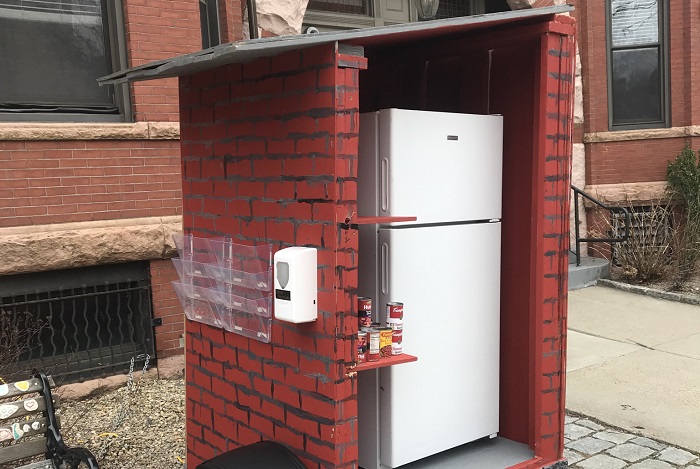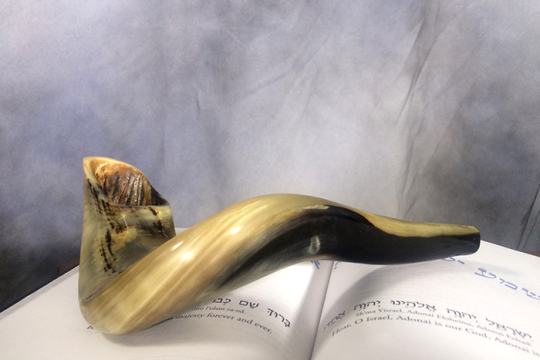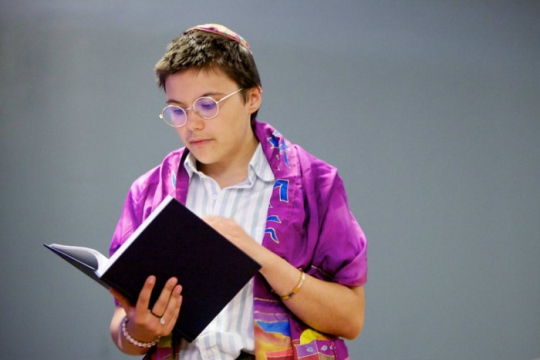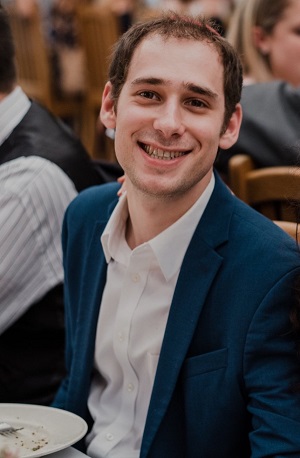Northeastern University’s Answer to Food Insecurity – A Community Fridge

As Rosh Hashanah nears, it is typical during the month of Elul to commit to heshbon nefesh, an accounting of the soul. We reflect on the ways in which we can grow to bring more light and healing to ourselves and our communities in ways both spiritual and practical. This Elul, what comes to mind as I think about my own growth and what empowers me towards religious action is the work of Northeastern University’s Community Fridge.
Last winter, the director of Northeastern University Hillel, Gilad Skolnick, told me that a student, Harrison Garcia, who is connected with Northeastern Mutual Aid, wanted to create an interfaith community fridge outside of our Hillel building. He felt that it was our obligation as Jews and people of privilege to provide food and basic sanitary products to those who have been systemically prevented from being able to access basic needs. I was inspired by Harrison’s vision and we collaborated with several interfaith communities across Northeastern University to help provide basic sanitary goods to many students in need.
The community fridge, which sits in between the Hillel and Catholic Center buildings, was installed the day before Passover. It was a timely reminder of the line that we recite during our Passover seders:
הָא לַחְמָא עַנְיָא דִּי אֲכָלוּ אַבְהָתָנָא בְאַרְעָא דְמִצְרָיִם. כָּל דִכְפִין יֵיתֵי וְיֵיכֹל, כָּל דִצְרִיךְ יֵיתֵי וְיִפְסַח. הָשַּׁתָּא הָכָא, לְשָׁנָה הַבָּאָה בְּאַרְעָא דְיִשְׂרָאֵל. הָשַּׁתָּא עַבְדֵי, לְשָׁנָה הַבָּאָה בְּנֵי חוֹרִין.
This is the bread of affliction that our ancestors ate in the Land of Egypt. Let all who are hungry come and eat; anyone who is in need should come and take part
The need was great. Northeastern Mutual Aid’s surveys showed us that roughly half of Northeastern’s students do not always have enough money for food each week and that an extra $25 a week, on average, was enough to help them make ends meet. Our student population is not unique in this regard. According to the National Institutes of Health, roughly ⅓ of students in the United States experienced food insecurity before the COVID-19 and that access to basic needs have only worsened for many students due to the pandemic.
The positive effects of the Community Fridge were immediate. Rebecca Templeton, one of our Hillel student leaders, remarked: "Within 30 minutes of us setting up and stocking the fridge, a man walked up to us and asked what we were doing. When we said we were building a community fridge and offered him salad and blueberries, he started crying, and he said how grateful he was that we started this project. He also mentioned that his wife loves blueberries, and that he has not been able to afford them in months.”
As we continue through the month of Elul, I hope that all of us may also be inspired by our tradition towards action, just as the Northeastern University Community Fridge was inspired by our tradition’s call to help the most vulnerable among us in a society in which some are privileged while others have been structurally disadvantaged for generations.
As we journey into 5782, think about the ways in which you can use a piece of liturgy to open up your heart, how you can spring into action to bring light and healing to yourself and your community. I see our Community Fridge as just a small step on the road to addressing food insecurity for students nationwide.
The Northeastern University Community Fridge is a collaborative project between Northeastern University Hillel, The Catholic Center, the Center for Spirituality, Dialogue and Service, Israel Campus Roundtable, Fair Foods, and Northeastern Mutual Aid.
Related Posts

Cheshbon HaNefesh and Accounting for our Social Media Usage

A Liberatory Elul Journey


